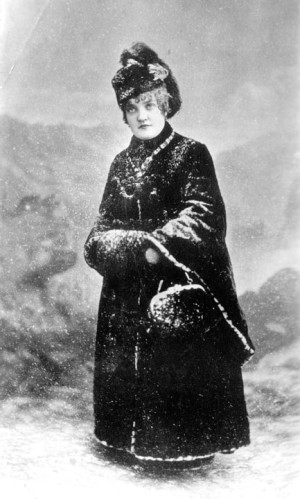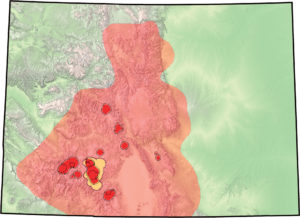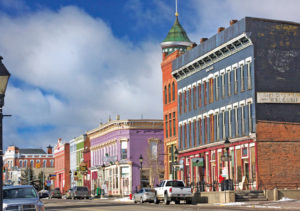By Martha Quillen
Many Americans are disillusioned with our political system, and some are completely fed up with government, but Harvard law professor Lawrence Lessig thinks we can fix things. Or even if we can’t, he thinks we have to try. And Lessig is doing just that. He’s trying to overturn Citizens United, reduce political corruption, and give ordinary people a more equal voice in our participatory democracy.
In mid-December, Lessig was on Book TV discussing his short-lived run to be the Democratic nominee for president and his book, Republic Lost: The Corruption of Equality and the Steps to End It. Despite the moneyed interests that permeate politics today, Lessig believes that citizens can prevail. The people merely need to accept that corruption is their common enemy and then start pulling together to effect change.
Lessig’s audience was supportive but skeptical until an audience member suggested a more moderate approach. He pointed out that some candidates have been frighteningly ignorant about foreign affairs and suggested a screening test to ensure that candidates are qualified.
Whereupon Lessig announced that the media was to blame for Donald Trump’s dubious success, not the system, because the media is supposed to ask the hard questions that will uncover a candidate’s incompetence. And spontaneous laughter rose – probably because everyone had thought of Trump when the idea of a screening exam was introduced. Donald Trump’s attention-grabbing proposals and mean-spirited attitude toward immigrants, Muslims and anyone who questions his proposals have alienated lots of Americans.
Yet he thrills his followers. So what do they see in Trump? Someone who understands their hopes and fears? A chance to rile liberals? Or maybe something more abstract, such as boldness, prestige or authority.
Whatever they see, I don’t. I view Trump as a belligerent, thin-skinned, egomaniacal bully whose proposals are disturbing at best, and may prove dangerous. Yet some people love him. And that’s where American political discussions frequently lead – to the brink of a divide so wide that we can’t see the other side (no matter how hard we try to understand it).
And this great divide seems to be driving us crazy. Or maybe it’s just modern life that’s making us crazy. Or Facebook, or Fox News, or MSNBC, or party politics that purposefully incite anger, increase dissension and distort our differences.
Or maybe it’s all of those elected officials and candidates who are barely qualified but fractious, and who get away with it because they have a real talent for drama, spectacle and egregious insults.
It’s little wonder that the citizens are disillusioned. We’re worried about our jobs and mortgages, while the candidates lob insults at one another as if political forums and debates were celebrity roasts.
So we need political reform. Lessig offers some good ideas, and so do Bernie Sanders and others. But in order to succeed, the people will have to embrace political reform as a common cause, and that hardly seems likely.
Lessig’s swipe at the media, however, suggests another factor that may be leading us astray. Popular media is increasingly partisan and disparaging, and that’s not only true of radio, television and the press. Now we have the Internet, email, Twitter and Facebook.
And one of the things our self-generated media have in common is how cryptic their messages tend to be – 140 characters, a picture post, a couple of sentences, or a few paragraphs. In fact, they’re often as barbed and uninformative as sound-bites. And America’s public discourse has also gotten excruciatingly one-sided and sardonic, which encourages unworkable solutions because it discourages serious discussion.
Now, instead of debating needs, costs and possibilities, citizens argue about who’s right and who’s wrong, who should win and who should lose, and who will rule and who won’t. And as often as not, our drive to put the other side in its place pushes the real issues clear out of the discussion.
[InContentAdTwo]
For a case in point, take Salida. For several years now, Salidans have been arguing about whether the city should move forward or go back, as if that were something more than a metaphor. This maxim evolved during a recent campaign – and it was a darned clever sound-bite for the moving-forward contingent.
But Salidans aren’t fighting about time travel. They are fighting about spending, and although I’ve talked to many candidates and council members, I am still not clear about who wants what, because Salida’s political discussions tend to quickly disintegrate into discourse about who’s out of control and a danger to humanity. But I think one side favors large investments in new recreation-oriented amenities, and the other wants better maintenance of roads and infrastructure.
However, it’s unclear what sort of amenities, repairs and overall directions the two sides have in mind. But even more problematically, our arguments don’t reflect Salida’s real political situation, which isn’t dire. Salida’s politics may be maddening, but its options and potential are superior because our region has magnificent natural attractions, and Salida is more complex than the Moving Forward and Taking Back positions indicate.
In Salida, all sorts of organizations and people are working together to improve the community’s position, including the Chamber of Commerce, Salida Business Alliance, Caring and Sharing, food banks, shuttle service, the Boys and Girls Club, schools, library, museum, various businesses and service groups, and ministries and churches. These groups, and the Moving Forward and Taking Back contingents, and artist organizations, and volunteer search and rescue workers, and animal shelters (and at the national level the Tea Party, and Right to Life movement, and Obama’s and Sanders’ successes in making small donations mount and matter) show that people working together can not only make a difference, they can wield enormous power and influence.
Salida’s political contingents serve a valuable purpose by making citizens more aware of city projects and plans and by reminding people that they have a voice in such matters.
But when citizens start focusing on their opponents’ faults instead of on issues, political debates veer off course and devolve into insults, and any chance for cooperation and compromise diminishes. And in recent years, political feuding has frequently gotten so nasty that it feels as if America is caught in a bad marriage and needs a divorce.
Clearly, Lessig’s audience is right to be skeptical about whether his movement can inspire a following. But Lessig is right, too: we need political reform.
As 2016 dawns, with ISIS on the march, and memories of Paris and San Bernardino in people’s minds, a movement to make our political system more responsive, serious and likely to field good candidates should be welcome. Because one thing is certain: there are going to be plenty of factions banding together to encourage more anger and division, and to promote rash actions and candidates.
Martha Quillen lives in Salida, which lies far above the madding crowds, but not beyond them.




